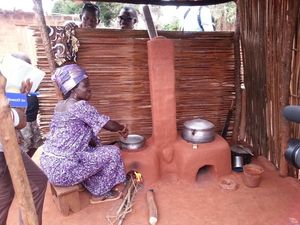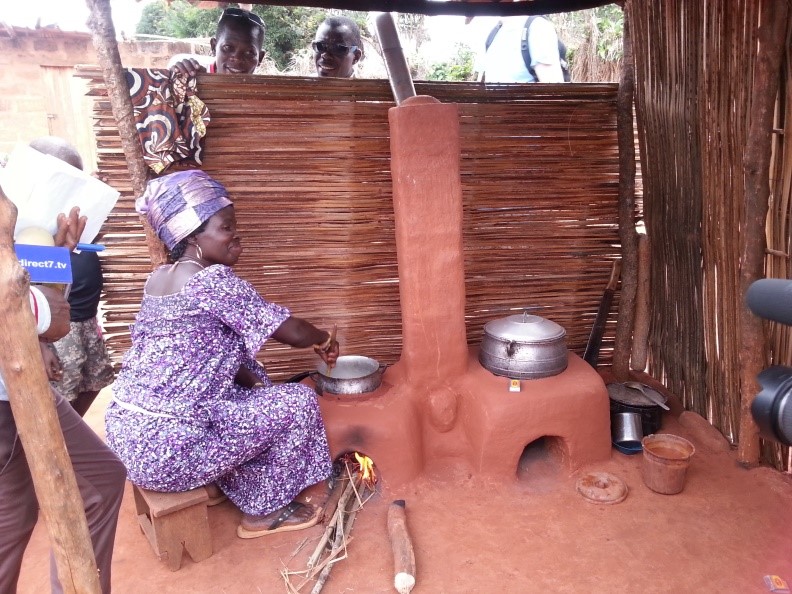Objectives
In 2012, the Federal Ministry of Education and Research (BMBF) initiated the joint research centre West African Science Service Center on Climate Change and Adapted Land Use (WASCAL). The aim is to build up know-how and scientific capacities on climate change and how to deal with the impacts on local land use in the long term within the framework of the Africa Strategy.
The ten countries Benin, Burkina Faso, Gambia, Ghana, Ivory Coast, Mali, Niger, Nigeria, Senegal and Togo participated in the project. Each country has a research focus on various aspects of climate change. In Togo, bioenergy plays a particularly important role, which is also in the focus of the current project.
The development of research infrastructure and the transfer of knowledge for the bioenergetic use of agricultural, forestry and organic residues (e.g. organic fraction of household waste) are therefore essential in order to make a contribution against climate change and at the same time to reduce deforestation, or at best to stop it.
According to this initial situation, the project should evaluate alternative and regenerative energy sources for rural areas and create the basis for successful implementation.
In a first step, therefore, biomass potentials should be quantified, technologies examined with regard to their suitability and, in the case of biogas application, a research structure created that is necessary to enable sustainable implementation of technologies.
Accordingly, the project focuses on the 3 thematic areas and set the following objectives:
Analysis of the potential system contribution of biogenic resources
The system contribution that biomass can make in Togo depends largely on the availability and mobilizability of the existing resource base. The work package therefore aims at a comprehensive systemic assessment of the expected impacts that would occur if the technologies considered in the project were extensively established in Togo.
Construction and commissioning of a biogas laboratory as well as corresponding training courses
Lomé, as a logistic hub in West Africa, offers the best conditions for the creation of a research infrastructure in the field of biomass conversion. In addition to the good availability of transport routes for the provision of potential biogenic substrates from agriculture or the food industry, the location benefits from the local university and the already existing scientific competencies. The university centre in Lomé can thus serve as a foundation for the development of research activities through the training of future experts.
Aim is the construction and commissioning of a biogas laboratory at the Université of Lomé in the year 2021. This laboratory enables the characterization of substrates with regard to their fermentability, the determination of process parameters for fermentation and the evaluation of process optimizations. The laboratory can also be used to train personnel in the operation of biogas plants with regard to the basic parameters.
Following that, the project aims to train employees of the University of Lomé both in the laboratories of the DBFZ and at the Université de Lomé in the relevant laboratory methods and organisational framework processes for operating a biogas laboratory. The exchange of scientific experts serves as an introduction to the theoretical and practical knowledge of operation and research in the biogas laboratory, and in the long term development of corresponding knowledge and research activities in Togo.
In order to support a sustainable transfer of both technical methods and theoretical topics, after successful commissioning of the laboratory, several in-depth workshops are planned at the University of Lomé.
Studies on alternative methods of cooking stoves
The aim is the development of an advanced and low-cost firing technology for the provision of process heat for cooking, which can be operated with agricultural residues and used in less developed regions. The pyrolysis residues should be further processed and made usable.
Therefore, pilot and demonstration stoves will be built at the University of Lomé. In a 2nd step, the stoves will be tested in a field study and their technical suitability and socio-economic impact will be determined. To this end, the project partner will conduct interviews with the users of the field test cookers and complete assessment forms in cooperation with the NGO JVE. These include e.g. questions of acceptance by women, how the pyrolysis cookers facilitate their everyday lives, how women rate the lower health burden caused by emissions, how the procurement of raw materials (formerly charcoal from deforestation, now agricultural residues) is changing for women and the village, what difficulties are occurring and what cost effects are occurring.

